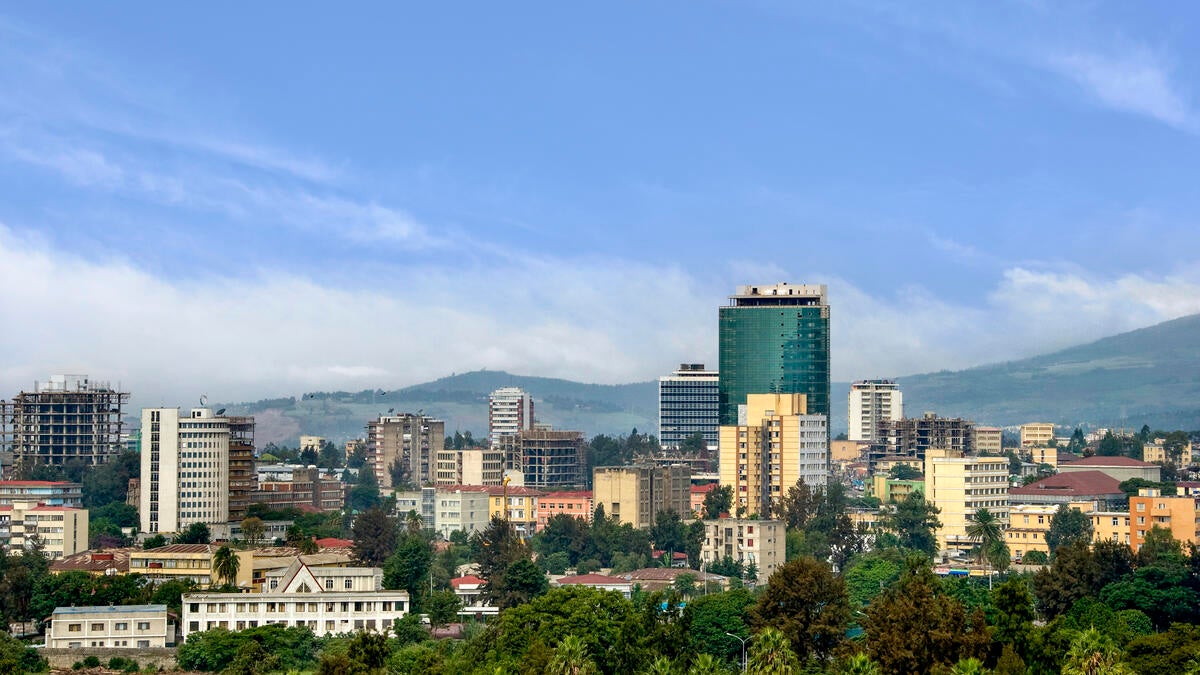Arizona State University and the Mastercard Foundation are collaborating with the Ministry of Education in Ethiopia to help the country build its technology to create an online higher education initiative.
The partnership, powered by a $16.8 million grant from the Mastercard Foundation, will enable 50 Ethiopian higher learning institutions to leverage the expertise of EdPlus at ASU to expand online learning delivery and potentially reach 800,000 young people across the country.
A team from EdPlus is already working alongside the Ethiopian Ministry of Education to help the universities create learning management and student information systems, as well as train faculty, staff and students. EdPlus is the unit that houses ASU Online.
“The scale of the project is significant,” says Amanda Gulley, chief of user experience design for EdPlus.
“The potential direct impact is 800,000 students and 35,000 faculty and instructors,” she says. “Long term, it will impact future generations of these students, which could be millions of Ethiopians.”
The new partnership builds on 10 years of collaboration between the Mastercard Foundation and ASU. The partnership began in 2012 with the Mastercard Foundation Scholars Program, an initiative that enables exceptional young people, primarily in Africa, to access quality higher education. Mastercard Foundation Scholars come from diverse backgrounds but share a deep commitment to service, having faced significant social and economic barriers to their learning and leadership. So far, the Mastercard Foundation Scholars Program has enabled higher education and leadership development access to 40,000 young people, 300 of whom have studied at ASU.
The new partnership in Ethiopia is aligned to the Mastercard Foundation’s Young Africa Works strategy, which aims to enable 30 million young people in Africa, particularly young women, to access dignified and fulfilling work by 2030.
“If we invest in institutions and help them scale to capacity so students can stay in country and get a quality education, they’ll be of benefit to their country and continent of origin,” says Bethany Weigele, chief innovation officer at EdPlus.
“There is an entire training arm so that our partners can take all of the lessons we’ve learned and create a pipeline of skilled talent to access, as well as to drive economic opportunities for the country,” Weigele says.
While there will be a uniform core technology infrastructure, each of the universities will be able to customize its platform by choosing different functions, Gulley says.
Yeukai Mlambo, senior director of international grant initiatives at ASU, was on an EdPlus team that recently returned from launching the project with a series of meetings in Ethiopia.
“We were there to build trust and ask questions and to fully understand the context in ways that we are not able to easily do when we are not there in person,” says Mlambo, who also is an assistant research professor in the Mary Lou Fulton Teachers College.
In addition to meeting with representatives from the Ethiopia Ministry of Education, the team also met with technology experts, registrars, faculty, students and a university president.
“We were there to help represent what online education can look like in Ethiopia and to help provide context and demystify assumptions about online education at scale,” Gulley says.
“We showed why integrating technology is important from a data lens — to better support students.”
Gulley says the graduate students they met with were interested in online learning.
“We talked to a student who is very similar to our students, working full time, and he was interested in the potential for work and life balance with online,” she says.
Weigele said the visit was vital for understanding the motivations and barriers to the Ethiopian educators.
“And that will be infused into every decision we make with them,” she says.
Top image of Addis Ababa, Ethiopia courtesy iStock/Getty Images
More Arts, humanities and education

Pen Project helps unlock writing talent for incarcerated writers
It’s a typical Monday afternoon and Lance Graham is on his way to the Arizona State Prison in Goodyear.It’s a familiar scene. Graham has been in prison before.“I feel comfortable in prison because of…

Phoenix civil rights activists highlighted in ASU professor’s latest book
As Phoenix began to grow following WWII, residents from other parts of the country moving to the area often brought with them Jim Crow practices. Racism in the Valley abounded, and one family at…

Happy mistake: Computer error brings ASU Online, on-campus students together to break new ground in research
Every Thursday, a large group of students gathers in the Teotihuacan Research Laboratory (TeoLab) in the basement of the School of Human Evolution and Social Change building on Arizona…


